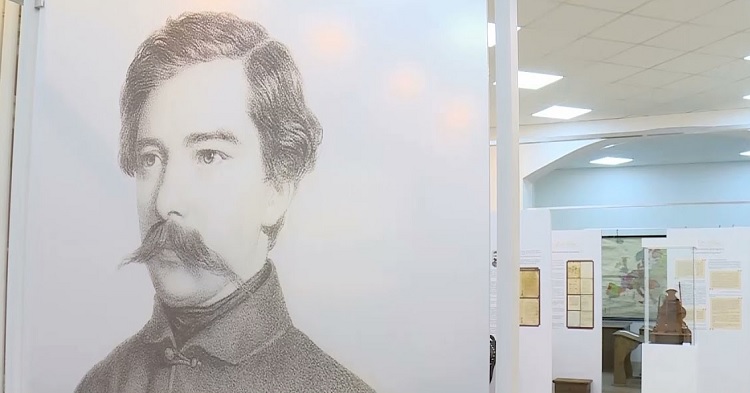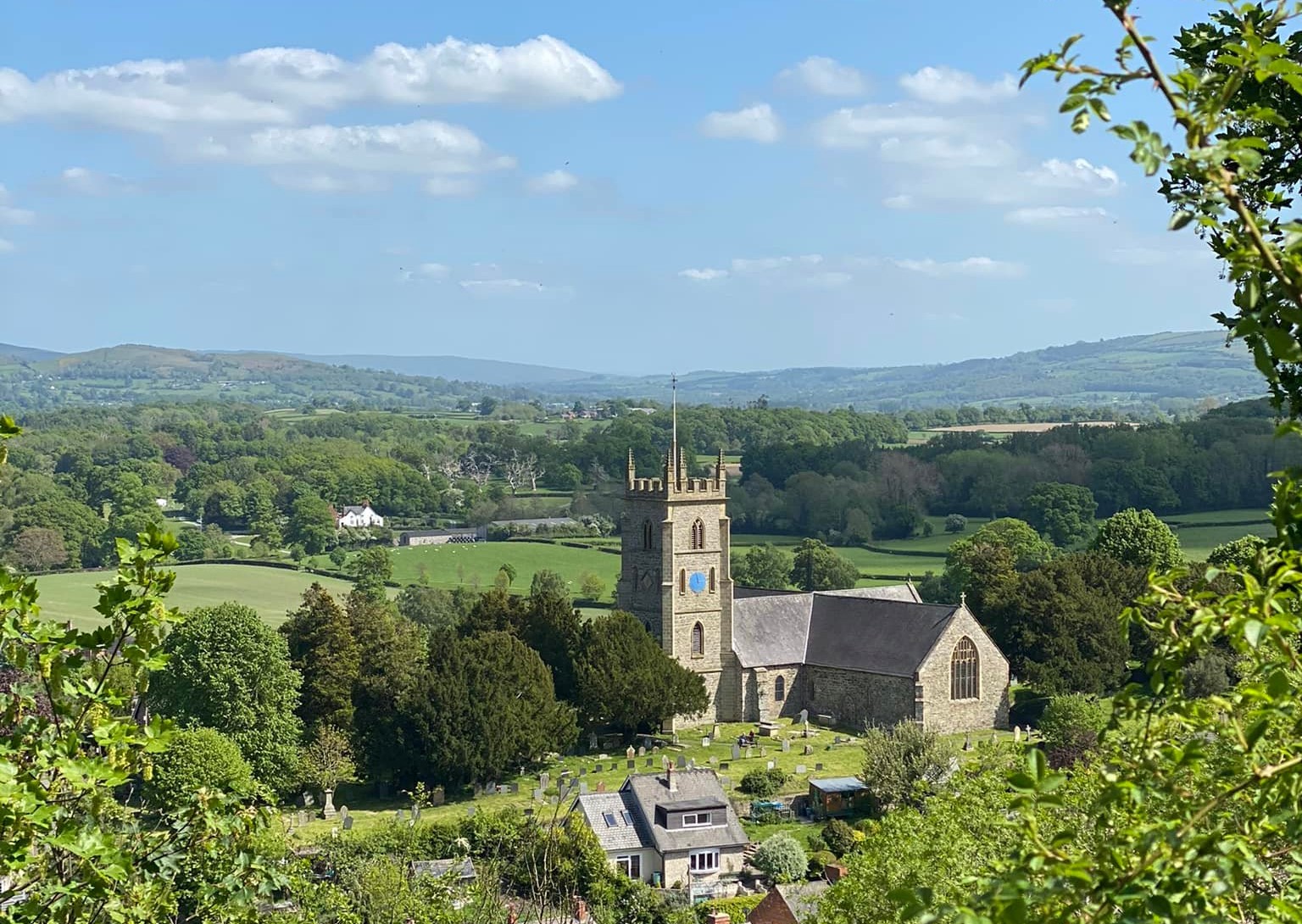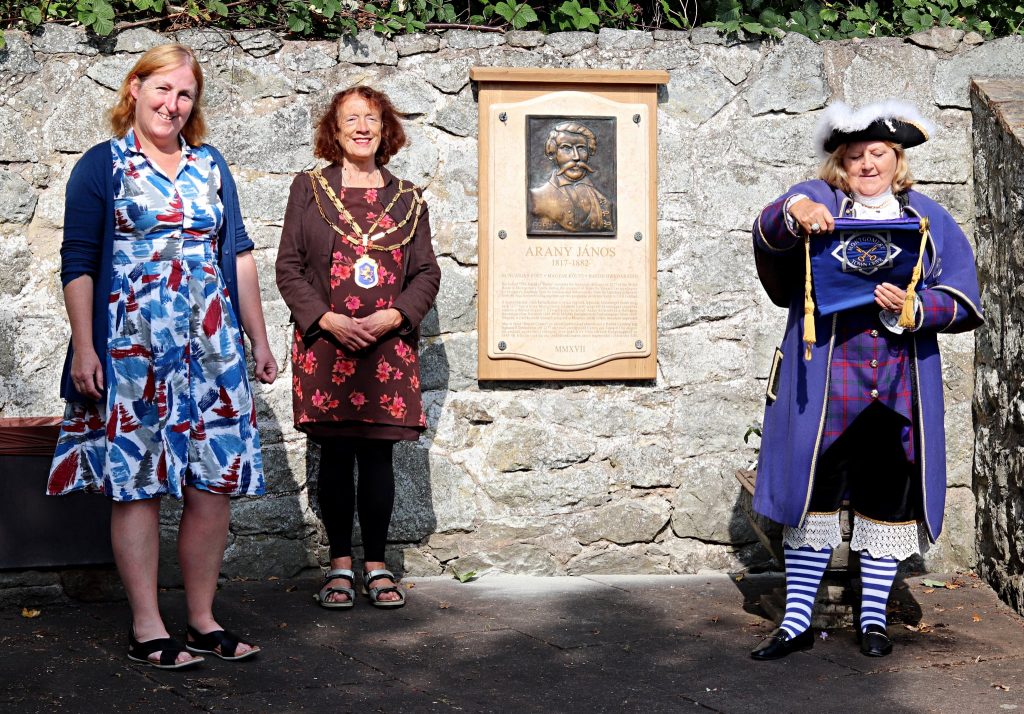The plaque commemorating János Arany and his poem in Hungarian, English, and Welsh was unveiled by Ferenc Kumin, the Hungarian ambassador in London, and Jill Kibble, the mayor of the small Welsh town with less than 1,300 inhabitants. According to the inscription on the plaque, the ballad by János Arany sings of the legendary heroism of the Welsh regents, who with death-defying bravery stood up to King Edward I of England, who had conquered Wales, at the famous Feast of Montgomery in 1277.
The text of the plaque also emphasizes that Arany’s poem is a tribute to the heroes of the Hungarian Revolution and War of Independence of 1848-1849, an allegorical hymn celebrating civil curia. Bálint Brunner, one of the main organizers, stressed that this is a historic moment in Welsh-Hungarian relations. He announced that May 14 will be the Welsh-Hungarian Friendship Day every year from now on.
For the celebrations, the Welsh town was decorated with Hungarian flags, and after the plaque was unveiled, the Hungarian and Welsh anthems were sung and the Welsh bards recited poetry. The event, which lasted into Saturday night, included a number of cultural activities, including performances by the Hungarian folk dance group from Bristol in the west of England near the Welsh border, and a video message with greetings from Arany’s hometown of Nagyszalonta. In the evening, the Welsh-Hungarian Cultural Association organized a concert of Welsh and Hungarian music, mainly folk songs and operas, at the local St. Nicholas Church.
János Arany and his ballads have been honored in Wales several times in recent years. In 2017, on the 200th anniversary of Arany’s birth, Montgomery posthumously awarded the poet honorary citizenship.
Fact
“The Bards of Wales” by János Arany
Edward the king, the English king,
Bestrides his tawny steed,
“For I will see if Wales” said he,
“Accepts my rule indeed.”
“Are stream and mountain fair to see?
Are meadow grasses good?
Do corn-lands bear a crop more rare
Since wash’d with rebel’s blood?”
“And are the wretched people there,
Whose insolence I broke,
As happy as the oxen are
Beneath the driver’s yoke?”
In truth this Wales, Sire, is a gem,
The fairest in thy crown:
The stream and field rich harvest yield,
And fair are dale and down.”
“And all the wretched people there
Are calm as man could crave;
Their hovels stand throughout the land
As silent as the grave.”
Edward the king, the English king,
Bestrides his tawny steed;
A silence deep his subjects keep
And Wales is mute indeed.
The castle named Montgomery
Ends that day’s journeying;
The castle’s lord, Montgomery,
Must entertain the king.
Then game and fish and ev’ry dish
That lures the taste and sight
A hundred hurrying servants bear
To please the appetite.
With all of worth the isle brings forth
In dainty drink and food,
And all the wines of foreign vines
Beyond the distant flood.
“Ye lords, ye lords, will none consent
His glass with mine to ring?
What! Each one fails, ye dogs of Wales,
to toast the English king?”
“Though game and fish and ev’ry dish
That lures the taste and sight
Your hand supplies, your mood defies
My person with a sight.
“Ye rascal lords, ye dogs of Wales,
Will none for Edward cheer?
To serve my needs and chant my deeds
Then let a bard appear!”
The nobles gaze in fierce amaze,
Their cheeks grow deadly pale;
Not fear but rage their looks engage,
They blench but do not quail.
All voices cease in soundless peace,
All breathe in silent pain;
Then at the door a harper hoar
Comes in with grave disdain:
“Lo, here I stand, at thy command,
To chant thy deeds, O king!”
And weapons clash and hauberks crash
Responsive to his string.
“Harsh weapons clash and hauberks crash,
And sunset sees us bleed,
The crow and wolf our dead engulf
This, Edward, is thy deed!
“A thousand lie beneath the sky,
They rot beneath the sun,
And we who live shall not forgive
This deed thy hand hath done!”
“Now let him perish! I must have”
(The monarch’s voice is hard)
“Your softest songs, and not your wrongs!”
In steps a boyish bard:
“The breeze is soft at eve, that oft
From Milford Haven moans;
It whispers maidens’ stifled cries,
It breathes of widows’ groans.”
“Ye maidens bear no captive babes!
Ye mothers rear them not!”
The fierce king nods. The lad is seiz’d
And hurried from the spot.
Unbidden then, among the men,
There comes a dauntless third.
With speech of fire he tunes his lyre,
And bitter is his word:
“Our bravest died to slake thy pride.
Proud Edward hear my lays!
No Welsh bards live who e’er will give
Thy name a song of praise.”
“Our harps with dead men’s memories weep
Welsh bards to thee will sing
One changeless verse our blackest curse
To blast thy soul, O king!”
“No more! Enough!” cries out the king.
In rage his orders break:
“Seek through these vales all bards of Wales
And burn them at the stake!”
His man ride forth to south and north,
They ride to west and east.
Thus ends in grim Montgomery
The celebrated feast.
Edward the king, the English king
Spurs on his tawny steed;
Across the skies red flames arise
As if Wales burned indeed.
In martyrship, with song on lip,
Five hundred Welsh bards died;
Not one was mov’d to say he lov’d
The tyrant in his pride.
” ‘Ods blood! What songs this night resound
Upon our London streets?
The mayor should feel my irate heel
If aught that sound repeats!”
Each voice is hush’d; through silent lanes
To silent homes they creep.
“Now dies the hound that makes a sound;
The sick king cannot sleep.”
“Ha! Bring me fife and drum and horn,
And let the trumpet blare!
In ceaseless hum their curses come…
I see their dead eyes glare…”
But high above all drum and fife
And all trumpets’ shrill debate,
Five hundred martyr’d voices chant
Their hymn of deathless hate.


